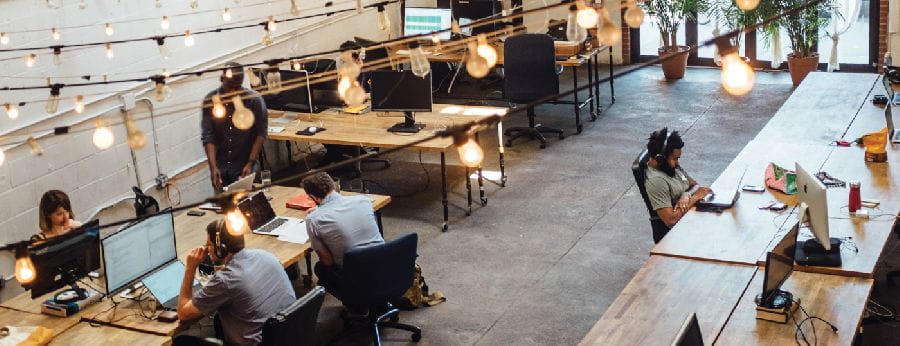Here is how the world is changing—from technology to business, sustainability to smart living. The first foldable phone screen has just been revealed. Family businesses are employing robotic process automation. A record number of women were voted to office in the U.S. elections. A painting created by AI was just auctioned at Christie’s. Remote control parking has just been legalised in Britain. And space tourism will finally take off this year.1,2,3,4
As global citizens and a soon-to-be developed nation, where are we on this wave of change? How are others disrupting industries in their countries? Where do we start?
At the current global speed of change, it is critical to stay informed of significant corporate, financial and political developments around the world—as they happen. It is wise to start investing in international reporting and expert commentary sources such as Forbes Asia, Bloomberg and Wired. While there are paywalls for the most prominent publications, news apps from the BBC, Al Jazeera and NHK are entirely free to use. Also, an increasing number of global events, forums and summits are being held in Kuala Lumpur. These venues provide access to first-hand news from industry leaders as well as the opportunity to network with global industry communities.
The world is saturated with startups. To succeed, your idea has to be unique enough to disrupt the existing market.
Follow the stories of game changers and learn how they started. Sometimes it is a culmination of random processes and accidental collaborations. At other times it’s purely the power of observation. One young university graduate’s visit to Japan opened his eyes on how popular ironwork-gifts were to affluent Chinese tourists. Upon his return to China, he decided to bring his hometown’s art of iron wok-making onto a mobile retail platform, and effectively became an entrepreneur.6
Apart from big profits, strong startup ideas can also make real social impacts. Kenya’s Samasource brings in Silicon Valley contracts which pay slum residents to process training data for self-driving cars, drastically improving the local community’s wages and livelihoods.7 They could be as simple as a mobile app that tracks buses for the country’s workforce in real-time or an international festival that celebrates the works of traditional artists and craftspersons. These enterprises represent the forward-looking, value-based society of a developed nation.

Disrupt the family business model
If there is anything that is ready and existing to develop into your big startup idea, it’s your family business.
All over the world, Gens X, Y and Z are taking over the reins and helping their family businesses cope in the age of disruption. But an enterprising few have also chosen to disrupt their family business models to create something bigger.1 Christina Suriadjaja, founder of the biggest accommodation-sharing platform in Indonesia, ‘changed the way her family looked at property’. Instead of continuing the tradition of her father’s develop-and-own hotel business model, she created a new platform for it. Part of her family’s hotel and property business now operates on her Travelio app.9
Where will you take your family business? Will you adapt, or will you disrupt?
Invest in sustainability and diversity
Investors and companies around the world rely increasingly on environmental policies, employee policies and governance information to evaluate how well-managed and profitable companies are. This is more pronounced with the recent addition of the Gender-Equality Index (GEI) on Bloomberg terminals.5 If it matters to Bloomberg, it must be important to the world’s investors. And it is—a more equal and fair work environment means happier staff and lower turnovers as well as better work performance and profits, culminating in stronger stock prices.
For better returns in your investment, include forward-thinking companies that support sustainability and diversity.
Crowdfund your idea
Crowdfunding has evolved tremendously since the days of Kickstarter. But the democratising effect remains the same if not stronger. The public-funding concept has grown into a variety of platforms for specific business ideas or causes. Look for one that is made to support yours. iFundWomen for example, a platform dedicated to empowering women businesses, was where Beau Wangtrakuldee chose to crowdfund her line of designer labcoats for female scientists.8 The power of crowdfunding comes from the size and diversity of the global community. But if you think local platforms can better understand where you’re coming from, look up MyStartr, PitchIn and SkolaFund.
Embrace Industry 4.0
Industry 4.0 or the fourth industrial revolution is transforming the way major industries operate, through the Internet of Things (IoT), Big Data and Artificial Intelligence (AI). With the world moving towards smart factories, remote engineering and autonomous cars, Industry 4.0 is increasingly becoming a pre-requisite to securing new businesses and markets.

Incubators in Malaysia are government-funded to help grow emerging local industries such as the arts, fintech, biotech and medtech. They do not take equity. In contrast, accelerator programmes include seed investment, mentorship and industry connections, culminating in a public pitch event. Here, accelerators are the most common startup platforms with the biggest often funded by industry brands that take equity. Others, like MaGIC of GrabTaxi fame, take a stake in the startup.
More than a space for startups, sole proprietors and freelancers, co-working is a community concept where individuals of different fields and backgrounds who share the same values and principles come together to work, socialise, share knowledge and collaborate. Diversity is the key to great co-working spaces. Co-working spaces in Malaysia require a time-based membership fee, although less formal spaces are free of charge. They focus on the fields of fintech, AI, IoT, cloud computing and wearables as well as other emerging technologies, with the potential to scale-up for the ASEAN region.

Tap into tourism
The Ministry of Tourism sees the sector growing to an annual inbound of 30 million foreign tourists, contributing to 100 billion ringgit by 2020. How can we net this enormous inflow of wealth? You can be among the firsts to take advantage of recent Budget 2019 offerings: business tax-incentives at Penang’s historical pier and a 500 million ringgit low-interest tourism loan facility to name a few.10 Look at what hospitality businesses in other places are venturing into. Take Airbnb for example. For years, it has been providing a borderless platform for local city residents, food enthusiasts, historians, heritage advocates and artists to market unique local tours and experiences to foreign visitors.
Also on the rise is domestic tourism, due to new airport levies and tightened consumer spending. In Nigeria, despite the absence of government investment in the sector, small social-media companies are transforming themselves into tour agencies, tapping a growing group of local millennials looking to explore their own country’s Alpine-like mountains and warm springs.14
As with most startups, the first thing you need is the right idea to get funded.
Women leadership and innovations
Women decisions have been transforming businesses for much longer than most of us realise. IBM appointed its first woman vice president in 1943. She went on to be recognised for her business achievements.11 Volvo’s 2004 concept car was designed and engineered by a women-only team, giving birth to innovative features which have remained standard in their cars till today. 12 Recent trailblazers include Bloomberg’s Deirdre Bigley who built one of the two world’s biggest business technology and data platforms from the ground up in less than a decade. 13 Bringing women into the workplace and corporate boards introduces unique perspectives, fresh ideas and social balance to an organisation. These invariably lead to innovations, employee satisfaction, and higher productivity for your business.

Follow the crypto
What began as digital activism to decentralise money rapidly grew into an asset which generated high returns for early investors. But its volatility continues to be a barrier. 2019, however, could be the year when the stock-tables turn. Leading industry experts are increasingly seeing possibilities of financial regulatory and blockchain advancements coming into place, making cryptocurrencies a stable institutional asset class and even common tender.16
Follow developments closely—it could come sooner than we think.
Study the 2019 Budget
This year’s ‘goodies’ come in nuggets of funds, low-interest loans, tax incentives and government-sponsored programmes across all sectors to support SMEs, industries from agriculture to manufacturing to aerospace, Halal market ventures, the digital economy, green assets, STEM education and training, women participation and leadership, and corporate social responsibility for the underprivileged.10
Study the Budget and see how it can fund your start-up idea, or help shape it.
Moving forward
We will soon pass the threshold of US$12,055 GNI per capita and call ourselves a developed nation.17 But development, according to the United Nations, is more than the richness of a country’s economy; it is the richness of human life.18 The opportunities discussed here are economic ones. But they are also about self-development as citizens of the world—realising our full potentials and making social impacts, both locally and globally.
But first, knowledge. Knowledge is the key to developing ourselves as individuals, our businesses, and our nation.
That‘s why we make sure that you always have access to expert economic analyses and market outlooks through your Relationship Manager. It’s the same thinking behind the business accounts we develop for our customers. The RHB Reflex current account comes with integrated e-solutions to help you respond to the demands of modern business, quickly and seamlessly. Everything at RHB Premier revolves around your success. From business planning and investments to setting goals along your wealth journey, it’s all about getting you there first.
Sources : 1 EY, Global Family Business Survey—is adaptation or disruption the secret to longevity? 20 April 2018. 2 Christie’s, Is artificial intelligence set to become art’s next medium? 16 October 2018. 3 Reuters, Remote control parking to become legal in Britain, 17 May 2018. 4 Exclusive: Jeff Bezos plans to charge at least $200,000 for space rides—sources, 13 July 2018. 5 Bloomberg Professional Services, Gender-Equality Index. Invest in a more equal future, 2018. 6 Reuters, Hammer and tongs—China entrepreneur leads handmade wok revival, 25 October 2018. 7 BBC News, Why Big Tech pays poor Kenyans to teach self-driving cars, 3 November 2018. 8 iFundWomen, AmorSui: Lab Apparel Reimagined, 2018. 9 USC Marshall School of Business, Next Generation Entrepreneur: Christina Suriadjaja ‘14 disrupts family business with Travelio, impressing EY and Forbes, 30 January 2018. 10 RHB Research Institute, Strategy—Malaysia 2019 Budget, RHB Report, 2 November 2018. 11 IBM, Biography for Ruth Amonette, 2003. 12 Volvo Cars, Volvo Unveils First-Ever Car Designed By Women, 2 March 2004. 13 NewsCred Insights, Q+A: How Bloomberg CMO Deirdre Bigley Leads a Global Marketing Organization, 25 June 2018. 14 Reuters, Nigerian millennials fuel domestic tourism, 16 November 2018. 15 Wired Science, Conversation: Elon Musk, 2007. 16 Bloomberg Live, The Future of Cryptocurrencies, 29 June 2018. 17 The World Bank, Why it’s important to look beyond averages when it comes to Malaysia’s development, 24 July 2018. 18 United Nations Development Programme, About Human Development, 2018.